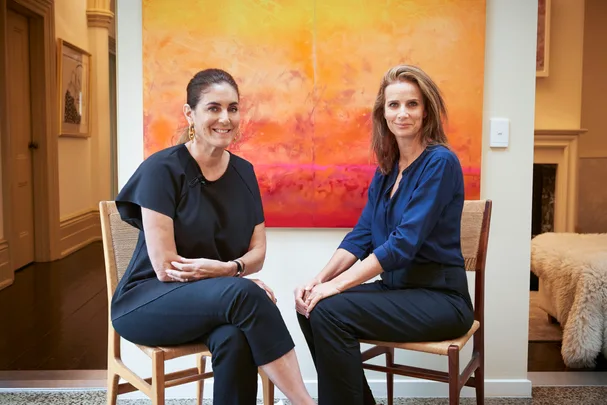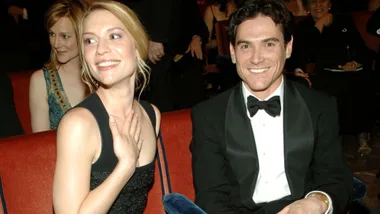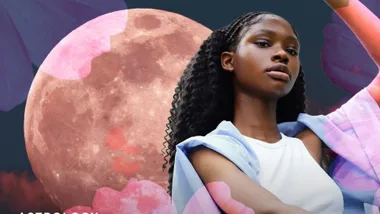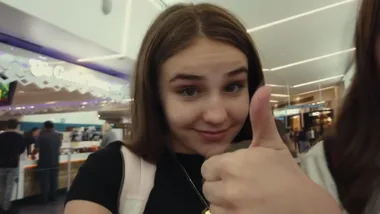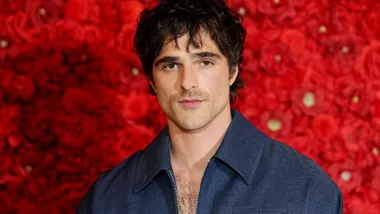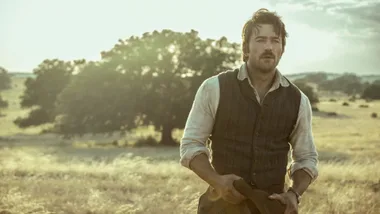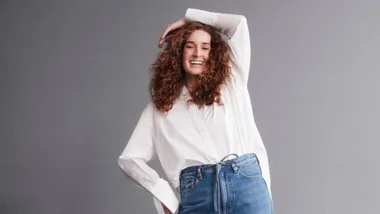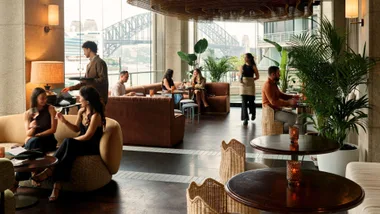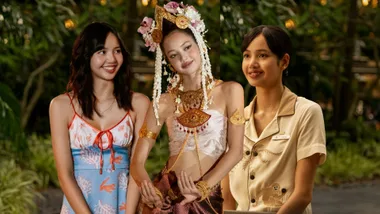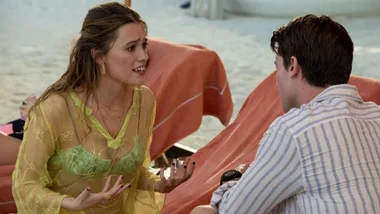JACKIE FRANK: Tell me about the early days. How did you break into the industry?
RACHEL GRIFFITHS: Well, I got shot out of a cannon, really, with Muriel’s Wedding. My beginning in Los Angeles was really unusual because Muriel’s Wedding was such a phenomenon. It was my first film and it made $60 million in the US. So I had a real following there. Having said that, anything I auditioned for pretty much five years afterwards I didn’t get.
JF: When you were living in Sydney, moving to Hollywood wasn’t really something that was on your radar, was it? You were quoted as saying, “I get spun out in LA. I was like well, yeah, I’m not beautiful. And now I just look back and go oh, you stupid idiot. It was probably a chat-up line. So it takes a while to tune in.
RG: [Laughs] Or maybe I just have a shopping problem and I’m blaming LA. I don’t know, it’s funny. As an Australian, I always felt very at home in the UK – it just felt like our people. Americans are very different to Australians and I had to adjust. I remember I went to this very highfalutin dinner party, right after Muriel’s Wedding and I was like the person of honour. And this writer, who apparently was like one of the top writers on a sitcom, said to me, “Well, you’re doing very well for an ugly person.” I was devastated.
I went to the toilet and I was trying not to cry and it just ruined my whole night. And now I look back and just think, he was joking. He didn’t actually think I was ugly. He thought I was 26 and gorgeous and, you know, it was that American humour. I took it literally because in LA I was like well, yeah, I’m not beautiful.
And now I just look back and go oh, you stupid idiot. It was probably a chat-up line. So it takes a while to tune in.
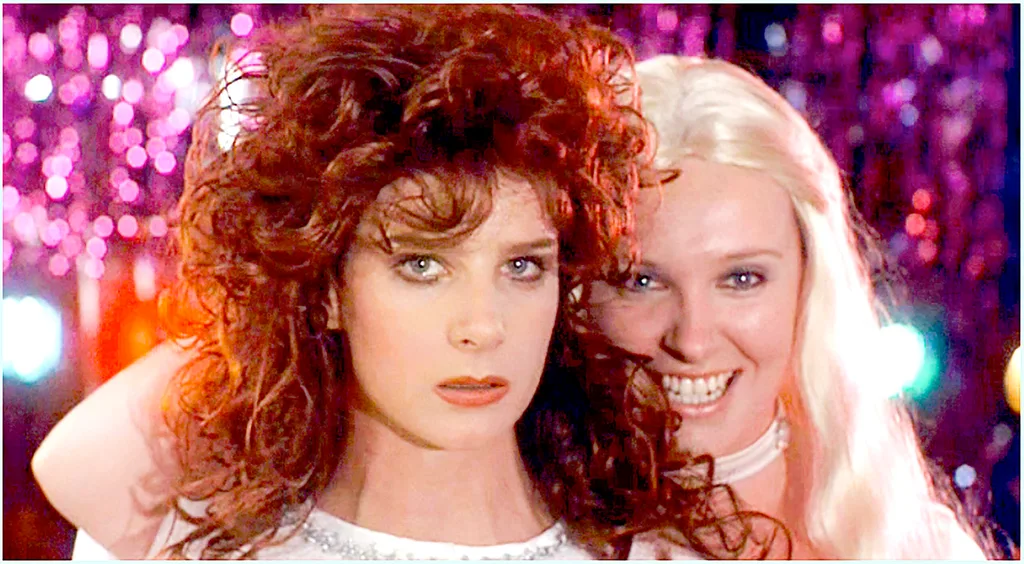
JF: But you’re also a bit self-effacing, and have been very frank about where you rank yourself in terms of looks. You’ve said you are “good looking but not beautiful”, and that having that outlook has worked in your favour.
RG: I read this great study about women executives. You have to be attractive, handsome, but not so pretty that anyone thinks you don’t have brains. I don’t want to say I feel sorry for really, really beautiful women, but I think it is hard to be taken seriously if you look like Charlize Theron. Like, she wasn’t taken seriously as an actress until she did Monster. Even I was like, God, she’s a model, how many bloody movies are they going to give her! And then you see Monster and you’re like, shame on me. Because I was totally doing the intelligent brunette/dumb blonde [stereotyping].
I don’t want to say I feel sorry for really, really beautiful women, but I think it is hard to be taken seriously if you look like Charlize Theron.
JF: Are women hard on each other?
RG: We can be. I remember recently I was trawling for some reason on the Daily Mail website and there was this comment about Nicole Kidman as a “starlet”. I was so angry. It was so debasing of her achievement. And I can just remember thinking about that journalist … you should be ashamed of yourself. This woman writing about one of the great actresses of the past 50 years. And there’s no male equivalent of that, is there? They wouldn’t be calling [Chris] Hemsworth a “star boy” … I find it so offensive. But I think men don’t take very beautiful women seriously, for sure.
JF: You’ve got three children – Banjo, Adelaide and Clementine. Your youngest, Clementine, is your “miracle baby”. You had a difficult birth …
RG: I think we both could have died, actually. She was born in 2009, and I had a spontaneous uterine rupture as I was delivering. Everything was great; I’d seen my obstetrician the day before. He was this fabulous OB – he even does the Kardashians – and he didn’t think anything was happening for a week or two. And then that night I went into labor. I knew it was going to be quick because Adelaide [my second child] had been an hour and a half – and that’s from ooh to hello, the whole thing.
Andrew [my husband] had jumped in the shower and I said, “No, I think we should go.” When we got to the hospital, I was already almost crowning and we went straight into the delivery room. Then I just had this insane amount of pain and suddenly I couldn’t push. Finally, we got her out and she wasn’t breathing. I remember it in slow motion, like the team kind of running over and pushing this huge red button [for emergency help], all the sirens going. Then I just crashed and it was clear I was bleeding. I was in surgery for 24 hours, but when I came out and my husband was there I just thought everything was going to be all right. I sent Andrew off to get my favourite meal. I hadn’t met Clementine, but everybody had told me she was OK.
So Andy is five blocks away, waiting for my veal in white wine and potatoes. I had a doctor standing there and we were chatting and then I looked down and I saw my stomach go up and I said to the doctor, “I’m bleeding again, aren’t I?” She was watching my blood pressure and she said, “Yeah, we’re going to have to take you back” and then I just remember all the alarms going. I was like, “Oh god, this is serious now.”
So I call Andy on the doctor’s phone and say, “I love you and I’m going back in” and he just drops the veal and runs back to the hospital. Then I was in continuous surgery for 48 hours.
JF: Oh my god!
RG: It was nine days later that I met Clementine. My best friend, Kate, somehow got the matron from intensive care to smuggle her through the laundry tunnels to see me. I’d kind of hit that wall and gone, “What happened? What happened?” And Kate had said, “She has to see her baby. It’s got to happen today. She can’t get better until she knows what it was for.” And then Clementine comes in on, like, this tray. It was worth it.
JF: Do you believe that things happen for a reason?
RG: No, I just think I was unbelievably lucky. I don’t think God chose me and my child to live any more than God chose some other woman to be trafficked into slavery, but the fact that I did live makes you just go, don’t sweat the small stuff, get on and do something worthwhile.
JF: You are known as an advocate for women. How do you see yourself contributing in that area?
RG: Smart women – and I do put myself in that box – think as we go through our journeys as women there is a time we move into “senior ladies of the tribe” roles. I feel like I’m just at the beginning of that journey. We have to have prominent women who can speak for others. There is something that happens when you’re “post-fuckable”, a time when we just don’t care anymore about what other people may think of us. In my 20s I probably tempered thoughts I had, feelings I had. I don’t think I was nearly as loud a feminist as I should have been.
JF: Except, hang on, in 1997 you protested about Melbourne’s Crown Casino by turning up at the opening topless.
RG: That’s true. But I wasn’t really advocating for women.
JF: How did that come about?
RG: I’m easily captivated, I guess, by an idea. I’m not anti-gambling and I don’t mind casinos, but for that moment when Crown first came to Melbourne, it was a huge change in our city’s culture. It just felt like this crazy concentration of public space for this enterprise.
JF: You’re a patron of Hagar, a charity committed to helping the victims of human trafficking. Why did you get involved?
RG: Well, initially, I thought slavery was a thing of the past. In a limited way I knew of female sex trafficking, but I thought it was a very kind of niche, small problem. And then you realise the level of criminal engagement and what the numbers are [an estimated 30 million people trapped in slavery] and how much money is being made.
It has overtaken arms dealing and is closing on drugs as being the main source of Cash flow for criminal networks. But how to do something about such an overwhelming issue? So I was drawn to Hagar because their mission is so specific: to take one person who has been rescued from domestic or sexual enslavement. It’s case by case. And it’s medical, legal. It’s working with local authorities. It’s deep-trauma processing because there’s so much shame, especially in trafficking.
They take your dignity. The final thing is to provide education in some kind of trade because if you have the ability to make a living, you’re worth more than being a trafficked person. We do a Style For Life day through the hair salons of Australia, and part of it is training women to be hairdressers. If you can work in a salon and do a great blowdry, you’re going to make more money than being forced to work in a brothel.
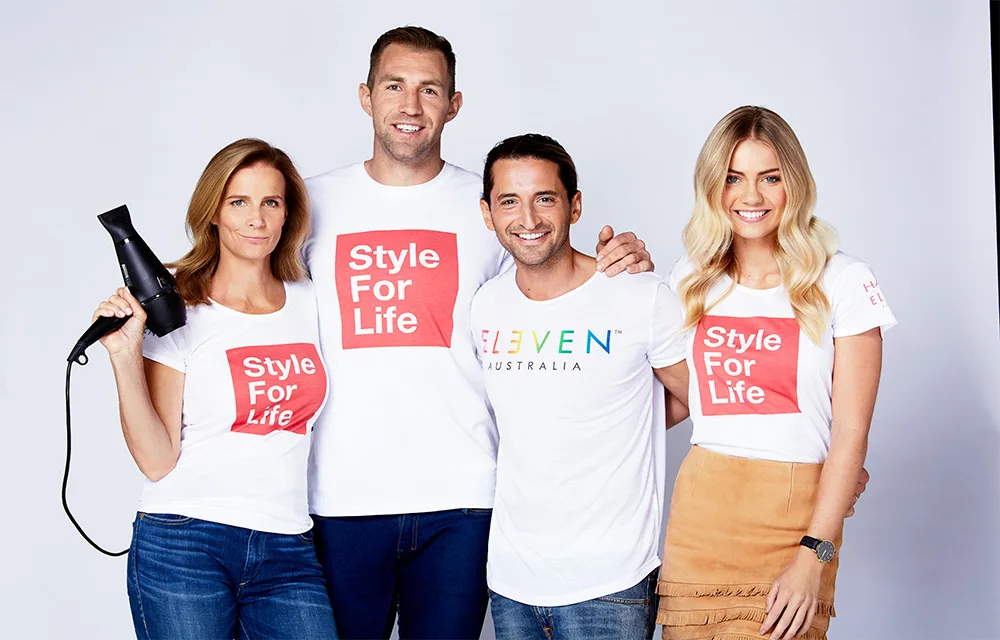
JF: What’s the most frustrating thing about acting and what’s the most fabulous?
RG: The most fabulous thing is being able to step into other lives. I just did this miniseries about the history of the civil rights movement through gay, lesbian, transgender eyes. I play a nurse who worked at the coalface of AIDS nursing [in the ’70s and ’80s]. These boys were dying, they’d been rejected by their families, the orderlies wouldn’t even come into the room with food because they thought they might get AIDS.
I had lunch with a male nurse who had been on that ward and clearly they’ve all still got post-traumatic stress. He started weeping when he talked about that time. It’s like their war.
JF: How do you deal with that?
RG: I’m not really a method actor. It’s all very well to empathise, but in the end I wasn’t holding the heads of 19-year-olds who were begging you to tell them they weren’t going to die. So I don’t really blur those boundaries. I try to be respectful.
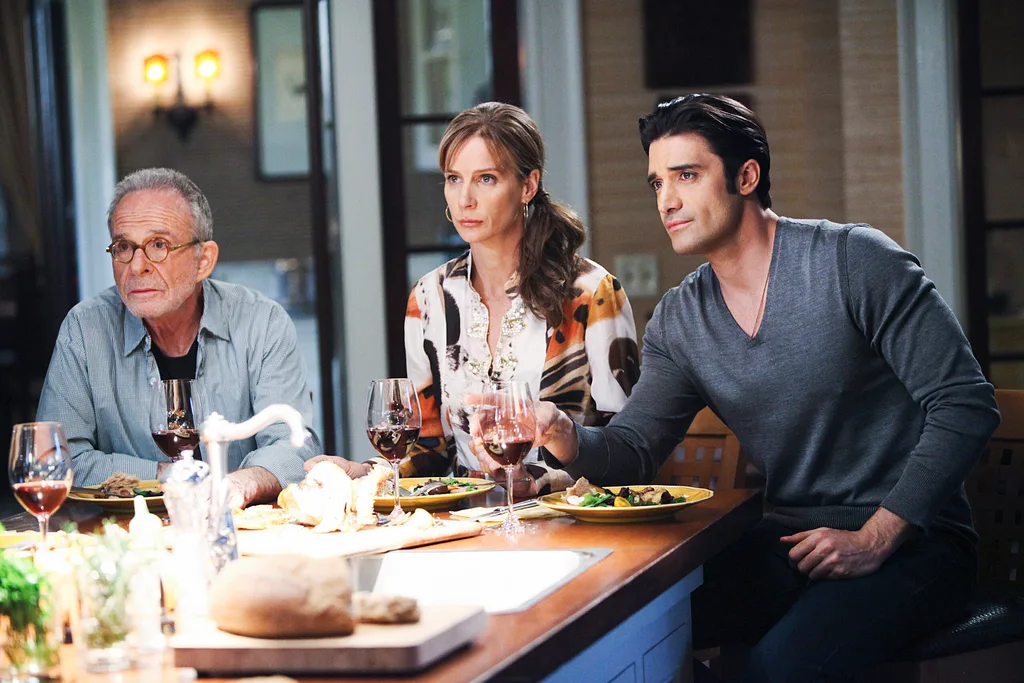
JF: What demands does success make on you, both professionally and personally?
RG: I’m one of those people that success has made a nicer, more graceful, more thankful person. I was quite pushy when I was young because I needed a certain degree of success to fill whatever hole I had inside myself. My father left when I was 11, we had a real kind of struggletown childhood. It was middle class from the outside, but behind closed doors, not a lot of excess. So I think I used to push hard to get somewhere. So I’m nicer now, I think.
